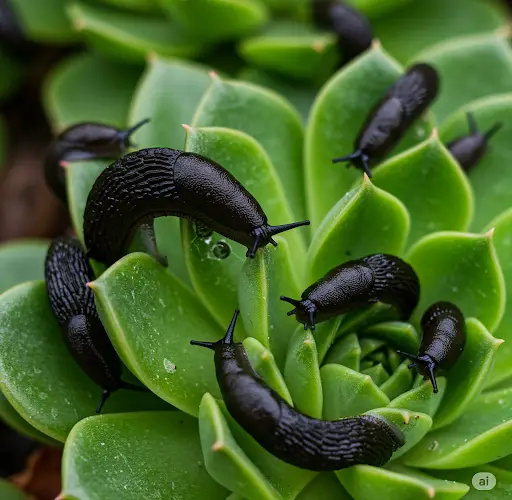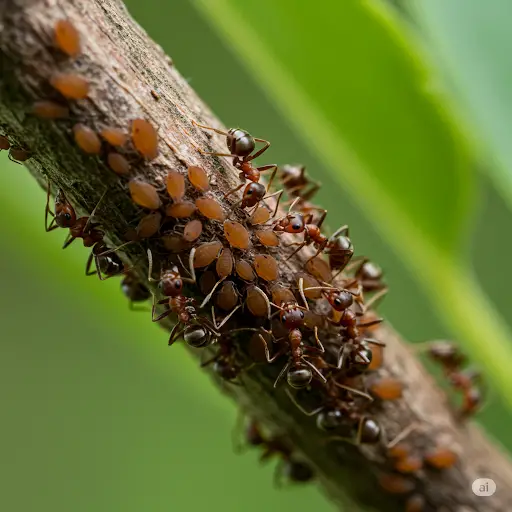If you’ve ever battled slugs in your garden, you know how quickly these slimy pests can destroy your hard work. They feast on young shoots, devour tender leaves, and leave behind a tell-tale trail of destruction. Traditional methods to get rid of slugs—like pellets or beer traps—can be messy, ineffective, or even harmful to pets and wildlife.
But recently, an unexpected and incredibly simple remedy has been making waves among gardeners. At first glance, it seems too good to be true. But the results speak for themselves—this method really works, and in some cases, the slugs appear to corrode and vanish right before your eyes.
The Secret Weapon: Baking Soda
That’s right—ordinary baking soda (sodium bicarbonate) has turned out to be a fast-acting and surprisingly effective solution for slugs. It’s inexpensive, readily available in any grocery store, and completely safe for humans, pets, and the environment when used correctly.
Many gardeners have used baking soda to combat fungal diseases on plants, neutralize soil pH, or clean gardening tools. But only recently has its effect on slugs become more widely known.
How It Works
Slugs are soft-bodied creatures, and their slimy exterior is essential to their movement and survival. Baking soda, a mildly alkaline powder, disrupts their delicate outer layer and dehydrates their bodies. Once it comes in contact with their skin, the chemical reaction begins almost instantly. Gardeners report seeing the slugs curl up and dissolve within moments—sometimes as if corroding on the spot.
While it might sound dramatic, this effect is a natural reaction between the soda and the slug’s mucus membrane. There are no toxic chemicals involved, and the method doesn’t pose a long-term threat to your garden ecosystem.
How to Use Baking Soda Against Slugs
Using baking soda is simple, but a few guidelines will help ensure effectiveness:
-
Dry Conditions Are Best: Apply baking soda in the evening or early morning when slugs are active, but avoid applying during rain or immediately after watering. The powder needs to remain dry to stick to the slugs and activate.
-
Sprinkle Directly on Slugs: For best results, locate the slugs manually and sprinkle baking soda directly on them. The reaction is fast, and the slugs will typically die within seconds or minutes.
-
Create a Barrier: You can also sprinkle baking soda around plant bases or garden beds to create a protective perimeter. This won’t kill slugs outright, but it may deter them from crossing into treated areas.
-
Reapply as Needed: Since baking soda can be washed away by wind, rain, or watering, you may need to reapply it regularly, especially during slug-heavy seasons like spring and fall.
Additional Tips
-
Use a shaker or fine sieve to apply the baking soda evenly and avoid clumping.
-
Avoid direct contact with plant leaves, especially delicate ones, as baking soda in large amounts can cause mild burning or browning.
-
Combine this method with other natural slug control techniques like copper tape, crushed eggshells, or nighttime slug hunts for a more comprehensive approach.
Why This Works So Well
The reason this method stands out is its immediacy. Unlike traps or bait, which take hours or days to show results, baking soda works within minutes. It’s also a much cleaner solution than beer traps or chemical pellets, which can create a mess or pose risks to curious pets and wildlife.
And unlike harsh chemical pesticides, baking soda doesn’t accumulate in the soil or disrupt the balance of beneficial insects like ladybugs or earthworms.
Caution and Consideration
While baking soda is non-toxic and safe when used in moderation, it’s still important to avoid excessive application in one spot. Overuse can alter soil pH and potentially harm sensitive plants. A light dusting around affected areas is more than enough.
Additionally, always wear gloves when handling garden pests and wash your hands afterward, even if you’re using non-toxic materials like baking soda.
Final Thoughts
This method may sound like folklore at first, but anyone who has tried it can attest to its effectiveness. Sometimes, the simplest solutions really are the best. If you’re tired of slugs munching through your garden, give baking soda a try. It might just become your new go-to tool for natural slug control.



